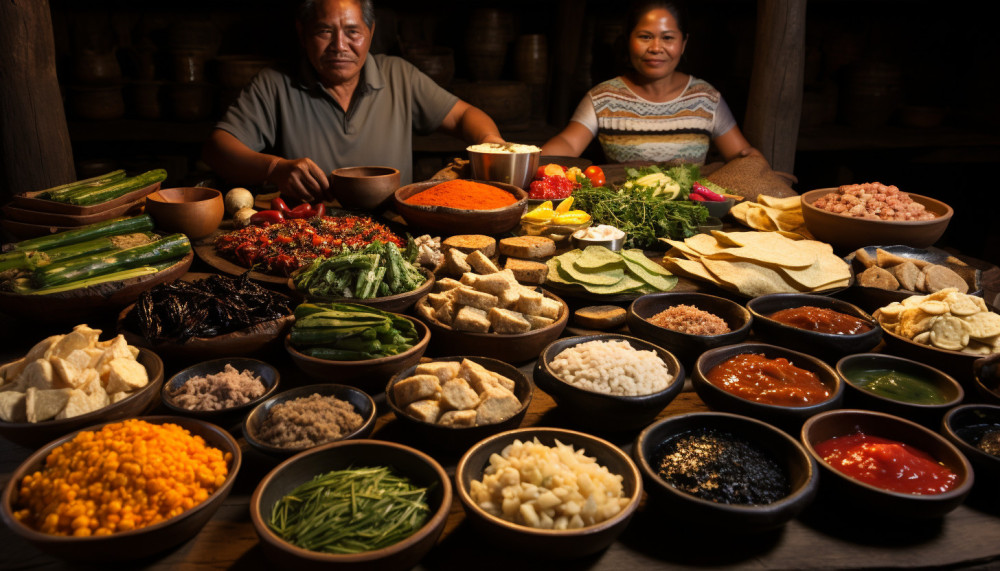Table of contents
As our planet grapples with the myriad challenges of environmental sustainability, one solution is making waves in culinary circles - cooking with insects. This alternative source of protein not only offers an effective answer to food scarcity but also promises a cornucopia of fascinating flavors and textures. It might seem like a bizarre proposition at first glance, yet this practice has origins stretching back thousands of years, deeply ingrained in many cultures worldwide. As we delve deeper into the potential benefits and practical aspects of incorporating bugs on your plate, you may find yourself intrigued by this sustainable delicacy that could shape the future.
History and Global Acceptance
Entomophagy, the practice of consuming insects, boasts a rich history and is prevalent across numerous cultures worldwide. The cultural perspective of insect consumption varies greatly from Asia to Africa to Latin America. Despite the widespread acceptance in several regions, the global acceptance of insects eating has been slow, particularly in Western societies.
The Western attitude towards insects has typically been one of aversion, largely influenced by cultural norms and dietary habits. The perceived 'ick' factor has been a significant barrier to the entomophagy's global acceptance. Nevertheless, this perspective is gradually changing. The growing need for sustainable food sources and the recognition of insects as a rich source of protein, vitamins, and minerals are leading to a shift in attitudes.
Today, we witness an increasing number of initiatives promoting entomophagy. These endeavors aim to overcome cultural barriers and educate people about the nutritional and environmental benefits of insect consumption, thereby shifting the perception of insects from creepy-crawlies to sustainable delicacies. As an anthropologist specializing in food culture, it is fascinating to observe these changing perspectives and the potential they hold for our future food systems.
Nutritional Benefits Of Insects
When considering a change in diet, it may be beneficial to look at the nutritional value of insects. Despite their small size, these creatures pack a powerful punch in terms of nutritional values. They are notably rich in complete proteins, a term used by nutritionists and dietitians to describe a protein source that contains an adequate proportion of each of the nine essential amino acids necessary in the human diet.
This places insects on a par with, if not above, traditional meat sources in terms of protein content. In fact, many insects offer a higher protein content per gram than beef, chicken or pork. These proteins in bugs are not only plentiful but also easily digestible, rendering them an efficient source of important nutrients.
Beyond this, insects also provide an array of essential vitamins and minerals. For example, they are a rich source of iron, zinc, and vitamin B12, nutrients that are often lacking in many modern diets. The health benefits of a bug diet extend further, with many insects also containing beneficial fatty acids, similar to those found in fish.
When comparing bug meat qualities to traditional meats, insects are not only a viable choice but a potentially superior one. They offer a sustainable, nutrient-dense food source that could help to address some of the world's most pressing nutritional challenges. With the continued growth of the global population, the consumption of insects could become a key component of our future diets.
Sustainability Aspect Of Eating Bugs
Exploring the domain of bugs farming sustainability, it is not hard to see the potential environmental benefits of bug cultivation over traditional livestock farming. One of the salient aspects to consider is the significantly lower carbon footprint associated with insect production. A meticulous study conducted by an environmental scientist reveals that the process of breeding, rearing, and harvesting insects as a protein source releases far lesser greenhouse gases compared to conventional livestock farming. Moreover, the amount of water required in insect farming is substantially less, making it a promising solution for sustainable food production. The comparison between insect and livestock farming, therefore, brings to light the potential of pests turned protein sources in mitigating the ever-growing environmental challenges. With this perspective, it becomes evident that the inclusion of insects in our diet can contribute to a greener and more sustainable future.
Culinary Innovations With Insect-Based Cuisine
The domain of gastronomy has been undergoing a radical transformation with a new wave of culinary innovations revolving around bug-based recipes. With a strong emphasis on sustainability and biodiversity, renowned chefs and eateries across the globe are taking the gastronomic scene by storm with gourmet dishes featuring edible insects.
Embracing the unorthodox, these culinary pioneers are not only challenging our preconceptions about pests but also demonstrating creative cooking methods to incorporate these unconventional ingredients into everyday meals. Insects, once considered a menace, are now gaining recognition as a viable source of nutrition and an exciting culinary frontier.
From home-made pest dishes that offer a unique twist to traditional comfort foods to high-end restaurants serving intricately crafted bug-based delicacies, the world is slowly but surely warming up to this sustainable food trend. With an array of flavors and textures to experiment with, this new gastronomic trend holds promise for a future where culinary innovation meets environmental consciousness.
Similar














